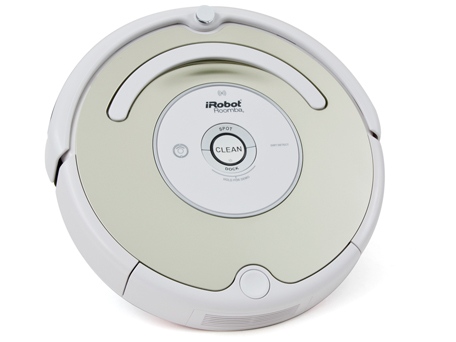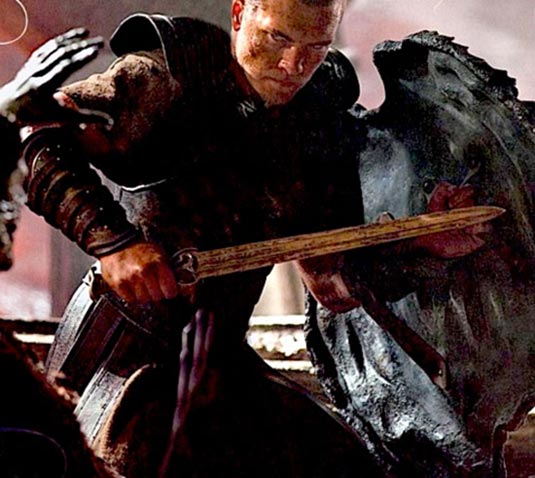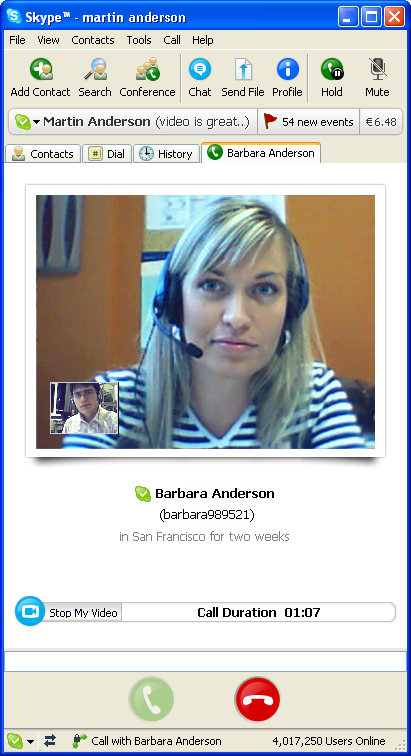A few times I have thought about whether my roleplaying game
RealTime would be a good
independent press RPG. It's an unusual game that's just about far enough from the mainstream core to fit into the indie presses, and can be expressed in a short enough book. And while I place little stock in
my own ability to promote it, I think it's a good game that does something unique, so the independent press is a great place for it. However, each time I think about this, there are three
roadblocks.

First, I have so many things I want to be spending my time doing, that doing a big rewrite of the game is not easy to find the time for. I'd do it only if I felt pretty sure that something would come of it -- if the other obstacles could be overcome, and I felt there was a fair chance I'd get some interest.
Second, even in the modern age of print-on-demand and PDF sales, setting up a small print run would require me to invest a bunch of cash up front with little assurance of recouping it. The smallest run would still be a fair chunk of change, and while it's nice to dream of making a profit, it's just as likely that, after all that, no one would buy the game. After all, while it's a given that
free games never get looked at unless there's a famous name associated with them, even games with a cost don't always make an impression on the indie game customers.
Third, and this one is usually the clincher since it's largely out of my hands, I can't get an artist who'll do logos, a cover, character sheet work, borders, and tone-setting art for it, and without that stuff a game goes from looking "indie press" to looking "made in some guy's garage" with zero chance of getting noticed. But artists don't usually work for a slice of the profits even when there's a good chance of there being profits. At best, they'll work for a slice of the gross; at worst, for up-front money. RealTime wouldn't need as much art as some games due to the setting being modern-day, but I can't go anywhere without some.
Today it occurred to me that I might be able to revive the idea by simply removing the "printed" part entirely and targetting eBooks exclusively. There's nothing about RealTime that would really need the large page size of some roleplaying books (no big tables or maps, for instance), and the only bits that would need to be printed are the character sheet and some materials from the sample adventure, which I could certainly make available separately.
How would this help? On roadblock one, the time it'd take to do a rewrite, it would help a bit only because formatting an eBook -- and here I mean one intended for reading on screen, not paper -- can actually be easier. The actual composing of text would be the same, but less fiddling with pagination and wrapping images and page composition to worry about. There's a little extra work if I wanted to make it available for multiple readers, but not much: a simple HTML document is the default for the Kindle, and easily enough converted to other formats for things like the Nook and for PDFs. (Even formatted more for the screen than the printer, a PDF will require more work than the other formats, especially since PDF isn't designed for screens and can't really reflow margins to fit screens like a real eBook, so it takes a lot more work to make a PDF that will be readable despite its limitations. But PDF's still too big a market to ignore.)
Roadblock two pretty much vanishes. If I had the text written right now I could probably have it up for sale on my Kindle within a day without investing a penny. I could get a PDF up for sale on any of various sites without any up-front investment too. I've not looked into the Nook licensing but I would be surprised if there was more than a nominal account setup cost.
Roadblock three is only somewhat minimized. I still have the same issues of artists not wanting to work for a share of sales, though the distinction between gross and net becomes less muddled since the up-front costs are eliminated. I need less art, and it's less important, because a typical eBook on the Kindle is mostly text with art used only for illustrations and the occasional accent; the aesthetic we're comparing to is more like the paperback novel, where text is king. Roleplaying game books have become big production numbers with splashy full-color glossy paper and art on every page, so even the indies have to have lots of art to not look "cheap," but I think that expectation is likely to be less of an issue on an eReader. Mostly I'd need a front cover, a distinctive logo, and a snazzy character sheet. A little bit of internal art and maybe borders would help (particularly for the PDF version) but I could get by with a lot less (and some of that could be modern clipart or photography).
I'm sure by now someone's released a for-purchase (as opposed to free) roleplaying game specifically as an eBook formatted only for reading on such devices, but I haven't heard of it. The few roleplaying game books I've seen on the Kindle store are all adapted PDFs with minimal effort put to making it look good and work well on the Kindle. So if it ends up being the first eBook-only RPG release, that'd be cool too. (It's already the first roleplaying game played in real time, and since it's set in today, having it use the technology of today seems appropriate too.)
So I'm making overtures to artists again, and this time I think I'll try to pursue responses more assiduously. If anyone knows any artists who might enjoy a job like this, send them my way.
 It makes me wonder if gay and lesbian people feel constrained about what they can say. If talking to someone with whom they choose not to reveal their sexual orientation, for whatever reason, they can't make completely innocuous comments (like "I was late for work because I had to pick up my husband") without running into the sticky situation. Saying "husband" (if male, or "wife" if female) definitely reveals something, and in places where gay marriage isn't legal or accepted, it's also likely to lead to confusion. Saying "partner" seems to strongly imply the same thing (though at least avoiding the legal quagmire where gay marriage isn't yet legal). So you either avoid the issue by not saying anything, or you have to lie, or you have to reveal something.
It makes me wonder if gay and lesbian people feel constrained about what they can say. If talking to someone with whom they choose not to reveal their sexual orientation, for whatever reason, they can't make completely innocuous comments (like "I was late for work because I had to pick up my husband") without running into the sticky situation. Saying "husband" (if male, or "wife" if female) definitely reveals something, and in places where gay marriage isn't legal or accepted, it's also likely to lead to confusion. Saying "partner" seems to strongly imply the same thing (though at least avoiding the legal quagmire where gay marriage isn't yet legal). So you either avoid the issue by not saying anything, or you have to lie, or you have to reveal something.






























 RealTime and RTC
RealTime and RTC Prism
Prism Uncreated
Uncreated Bloodweavers
Bloodweavers Foulspawner's Legacy
Foulspawner's Legacy Lusternia
Lusternia